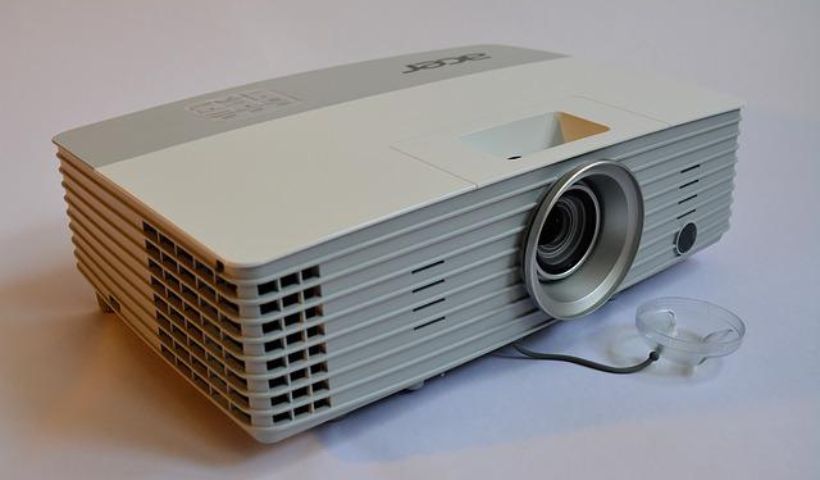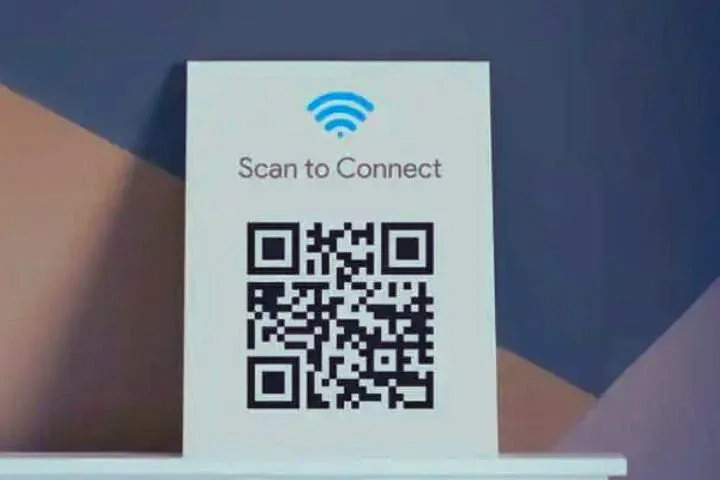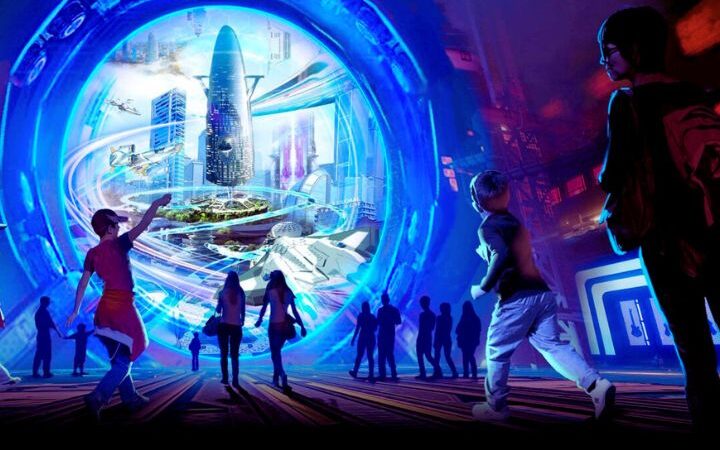Video Projector Or TV: The Selection Criteria

Video Projector : You want to equip your living room or change television, and you hesitate between investing in a TV or a video projector? The choice involves many criteria: image quality and contrast, screen size, viewing comfort, size and installation, available options, price. Here is a summary of the different criteria to consider when making your choice.
Table of Contents
The Contrasts And The Depth Of The Blacks
A television’s black depth measures the deepest black that the device is capable of rendering. The lower the black residual, the deeper the blacks on the screen will be. It is estimated that the OLED technology of TVs is that which restores the deepest blacks (absolute black). However, this does not mean that by buying a TV, you will get deeper blacks: IPS LCD technology has very poor reproduction of deep blacks. In addition, video projectors can render deep blacks, especially if you use a JVC projector or a gray canvas for projection.
It is also important to note that the depth of the blacks does not only depend on the panel used, but also on the ambient light in the room.
Contrast is another indicator of whether the Image Diffuser can produce deep blacks when scenes are dark. It is the ratio between the luminance of whites and the luminance of blacks.
For TVs, OLED technology, once again, stands out for its infinite contrast , unlike LCD screens. For video projectors, it will be necessary to choose a device with a contrast of more than 3,000: 1, either those with an LCD matrix, SXRD for a Sony device, or even D-ILA for a JVC. Avoid choosing a mono-DLP projector (the sequential contrast is less than 2000:1).
It should be noted that one will find in the data sheets of image diffusers another notion of contrast, the ANSI contrast (as opposed to the sequential contrast). This indicator indicates the intra-image contrast at 50% white, ie the ratio between the average luminance of the white boxes and the average luminance of the black boxes. The higher the ABSI contrast, the more contrast and vividness the image will have.
The ANSI contrast is 05010 times stronger for TVs : it is infinite for OLED screens and can exceed 5000:1 for LCD screens, against 300:1 to 500:1 for video projectors!
If you want additional information, you will find everything you need to know about.
Image Size
Cinema lovers will undoubtedly prefer the video projector , which can go up to 7 meters diagonally without necessarily paying more. Conversely, a TV screen measures between 24 and 85 inches diagonally, and prices are often too high. For 300 inches (the classic mid-range projector), you will pay less than for a 75-inch TV, which will cost at least 2000 $.
Image Quality
With a TV, the image quality is more affordable. There are a large number of 4K and HDR televisions, two cutting-edge technologies that make it possible to obtain sharper, more colorful images, and closer to the real rendering. You will find them even on the most accessible models in terms of price.
As for video projectors, they do not all have 4K and HDR, except for the most expensive models. In addition, unlike the TV, the video projector is more sensitive to ambient light and you will have more reflections.
Like the image quality, the rendering differs whether you are using a TV (brilliant rendering, especially with an OLED screen) or a video projector (cinema rendering).
3D
Whether you’re buying a projector or a TV, you’ll find 3D models for both . The proposed 3D is said to be active, that is to say that you can view it via rechargeable 3D glasses.
4K
Similarly, TVs and projectors both offer 4K and Full HD models. However, if entry-level TV models most often have 4K integrated, this is not the case for entry-level video projector models: to benefit from 4K, you will have to invest in a more dear.
Ease Of Installation
The TV is easier to install than the video projector , because you just have to put it on a piece of furniture or hang it on the wall, and make the necessary connections. In general, the image adjustments (contrast, colors, etc.) are automatic, even if they can be personalized. Everything is done via the remote control.
On the other hand, to install a video projector, you must install the device (in height or even on the ceiling) and the projection screen, and manually make all the adjustments. They will have to be redone each time since the rendering is sensitive to the ambient light and the adjustment of the imager will depend on the distance between the device and the screen.
Also Read : Technology Locks






